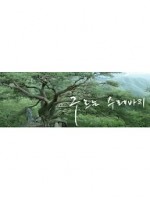130, Suyeonggangbyeon-daero,
Haeundae-gu, Busan, Republic of Korea,
48058
DATABASE
SAMSARA (2020)
Trailer
< Gu-reu-neun Su-re-ba-kwi >
Do-bub is the Buddhist master who is old and respected in his denomination. He oversees many chief priests of Buddhist temples.
Hye-jin, the first one of the chief priests, is the head of a big Buddhist temple.
He was abandoned from his parents in childhood and grew up in the hands of Do-bub.
Rather than he follows the rules and precepts of Buddhist doctrine, he obsessively sticks to the relationship with Do-bub , the foster father, even though he wants to be...more
Hye-jin, the first one of the chief priests, is the head of a big Buddhist temple.
He was abandoned from his parents in childhood and grew up in the hands of Do-bub.
Rather than he follows the rules and precepts of Buddhist doctrine, he obsessively sticks to the relationship with Do-bub , the foster father, even though he wants to be...more
| Genre | Family, Drama | Production Status | Released |
|---|---|---|---|
| Running Time | 130min | Release Date | Sep 23, 2020 |
| Country | South Korea | Rating | 12 |
| Language | Co-Production | N | |
| Original |
-
Number of Screens : 4
-
Total Admissions : 1,072
-
Total Gross : $5,836
As of Jan 11, 2026
-
AVANT-GARDE FILM | filmmoon@daum.net
- Republication, copying or redistribution by any means is prohibited without the prior permission of KOFIC and the original news source.












